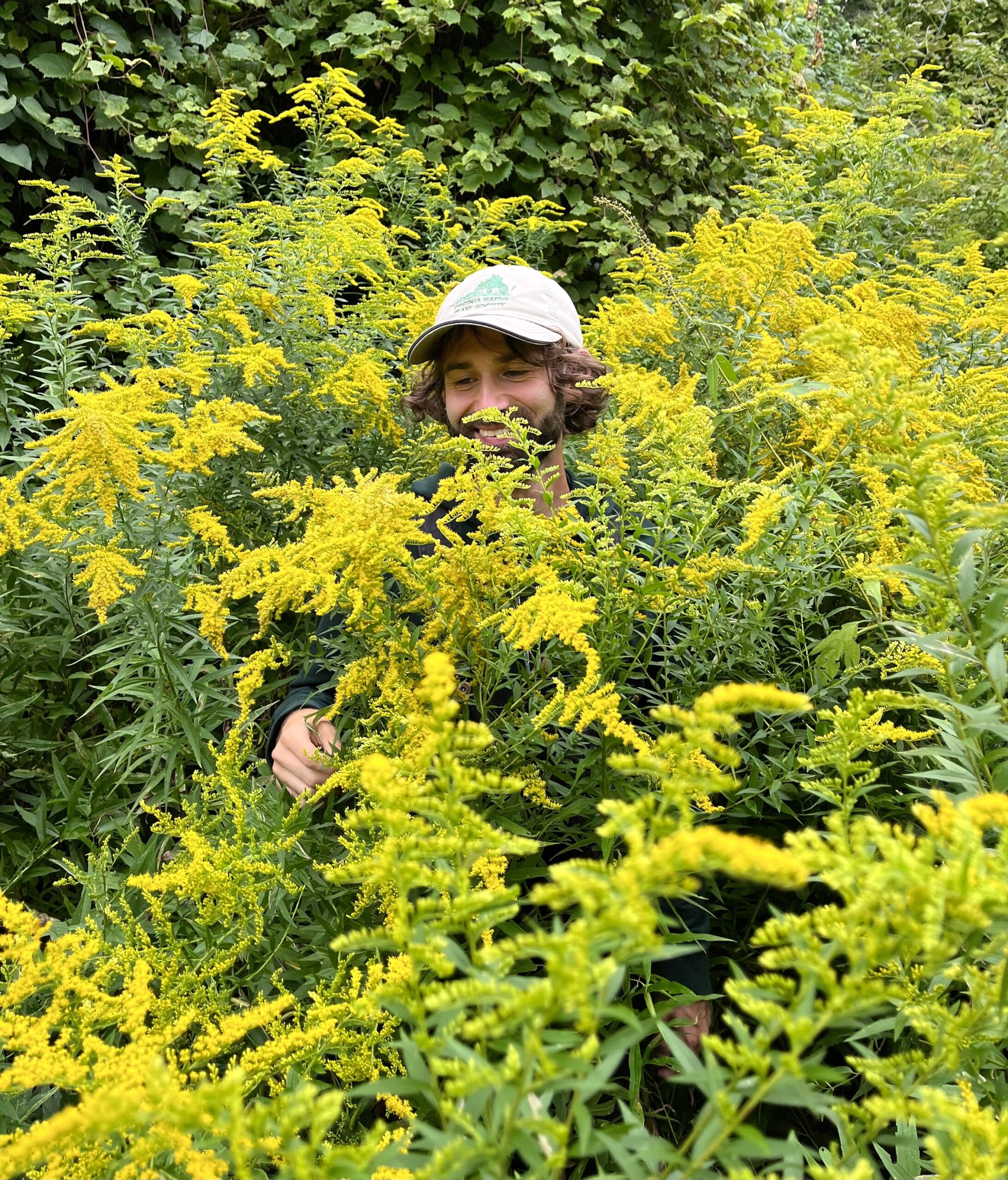Webinar: Cities are the Place to Bee: The Role of the City in Shaping Bee Communities
On October 16, 2025, NANPS welcomed bee ecologist Anthony Ayers for a webinar on the role of cities in shaping bee communities.
Watch the recording here:
Webinar Description: Through urbanization, humans have dramatically transformed natural landscapes into built-up environments, presenting numerous challenges for pre-existing biodiversity. Native bees in particular face threats from habitat loss and pollution to the spread of invasive species.
But there is hope! The urban parks and residential yards that make up a considerable portion of a city’s green space represent often untapped opportunities to create habitat for native bees.
In this webinar, Anthony Ayers draws on his PhD research to delve into how urban environments influence bee diversity, the impact of native plant richness, and the surprising ways residential gardens and public green spaces can become thriving sanctuaries for pollinators. You’ll learn which plants bees love most, how even small-scale gardens can make a big difference, and why public understanding of native bees is crucial for long-term conservation.
Speaker Bio: While always intrigued by insects, Anthony Ayers’ love of bees was realized as an undergraduate student after his advisor at the time, Nancy Cowden, opened his eyes to how wonderfully diverse and unique native bees can be. It was also during this time that his adoration for native plants developed as there was an immediate understanding that neither native bees nor native wildflowers could exist without the other. Nearly seven years later, Anthony has since completed his MSc in the Rehan Lab at York University where he continues as a third year PhD candidate studying urban bee ecology. His work explores multiple ways in which bees respond to the urban environment with the broader goal of developing ways of preserving biodiversity during a time in which urbanization continues unabated.
Categories
NANPS: North American Native Plant Society<br>
PO Box 69070<br>
St. Clair PO<br>
Toronto, ON<br>
M4T 3A1<br>
Recent Initiatives
Volunteering
 NANPS is a volunteer-operated organization. Virtually everything we achieve is through the efforts of volunteers. The more assistance offered by our members, the more we can accomplish together. If you have some time to give...even just occasionally...you can help. Read More...
NANPS is a volunteer-operated organization. Virtually everything we achieve is through the efforts of volunteers. The more assistance offered by our members, the more we can accomplish together. If you have some time to give...even just occasionally...you can help. Read More...NANPS Seed Exchange
 The 2023 - 2024 Seedex list is available for viewing at Native Plant Seed Exchange!
The NANPS Seed Exchange is open to all members across the continent and relies on your participation. If you are not yet a member, you may join online now or include your membership form with your seed request....Read More
The 2023 - 2024 Seedex list is available for viewing at Native Plant Seed Exchange!
The NANPS Seed Exchange is open to all members across the continent and relies on your participation. If you are not yet a member, you may join online now or include your membership form with your seed request....Read More









